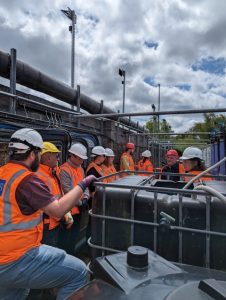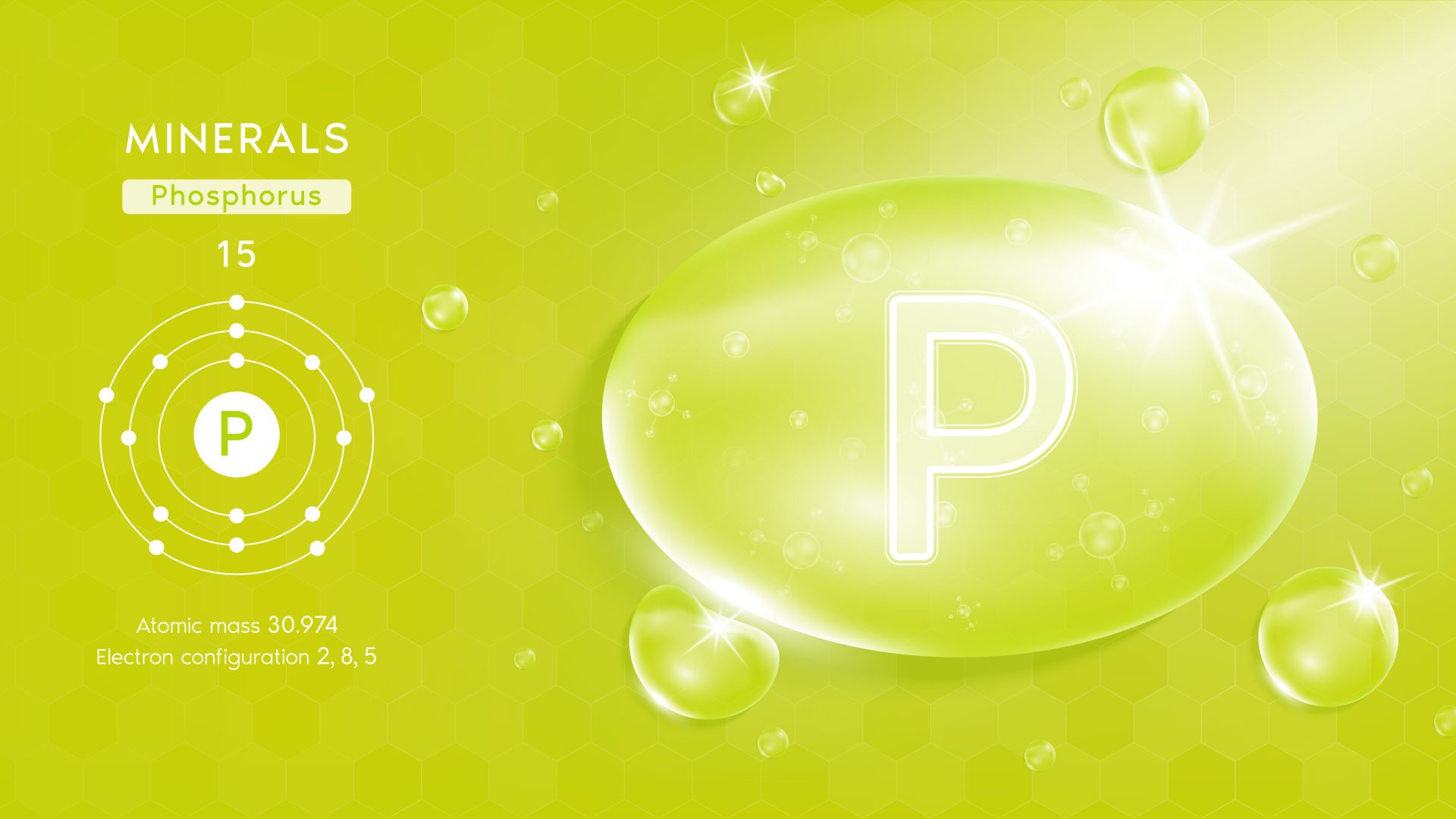Southern Water, scientists and other water companies are joining forces to find new ways to tackle phosphorus pollution.
 The new project, is exploring chemical free options for phosphorus removal, to reduce the carbon footprint of wastewater treatment, without negatively impacting water quality.
The new project, is exploring chemical free options for phosphorus removal, to reduce the carbon footprint of wastewater treatment, without negatively impacting water quality.
Southern Water is working in collaboration with United Utilities, the University of Portsmouth, Wessex Water, Power & Water, Evergreen, Hydro Industries and Kolina as part of this.
The majority of rivers in England have high levels of phosphorus, which can be very damaging to water environments, promoting excessive algal growth and depriving fish and other aquatic animals of oxygen. There is also concern for the long term sustainability of phosphorus fertiliser supplies, the majority of which are mined and imported.
The water industry is heavily dependent on dosing metal based chemicals for the removal of phosphorus.
These chemicals can remove the mineral, but they come at a price with UK companies spending in the region of £39 million a year with rising demand increasing prices. They also promote increased sludge volumes and require additional treatment.
This solution also does not scale down well to small rural sewage works which are becoming more regulated for their effluent phosphorus levels and have limitations in terms of area and energy supply availability
Potential solutions to reduce phosphorus range from electrocoagulation (using electrical reactions to clump together particles), to natural coagulants and reactive media, which is the University of Portsmouth and Southern Water’s contribution.
“Reactive media” are a range of different materials which attract and bind phosphorus to their surface, enabling them to be placed in a simple filter bed or wetland. These technologies are being trialled at rural wastewater sites, which face unique challenges for chemical-free treatment.
It’s clear there is a need for a more sustainable process to remove phosphorus if we want to maintain water quality and reduce the amount of carbon used in the manufacturing and delivery of coagulants.
Rory Miles, Innovation Programme Manager for Southern Water said:
“The Water Breakthrough Challenge is part of a series of competitions from Ofwat, run by Challenge Works with Arup and Isle Utilities, designed to drive innovation and collaboration in the sector to benefit individuals, society and the environment. It supports initiatives that help to tackle the biggest challenges facing the water sector, such as achieving net zero, protecting natural ecosystems and reducing leakage, as well as delivering value to society.”
The Alt-P project was one of nine winners that share £36m as part of Ofwat’s first Innovation in Water Challenge in 2021.
Southern Water is leading the reactive media work package and in collaboration with University of Portsmouth is trialling different reactive media in lab scale, at the University’s Innovation Hub at Petersfield wastewater treatment works (WWTW) and at site scale at their West Marden WWTW using a mobile testing unit. Southern Water has a long-standing collaboration with the University and previously tested varied solutions, aiming to enhance the efficiency and sustainability of phosphorus removal processes.
Project lead for Southern Water, Dr Adela Martin said:
“The Ofwat fund encourages collaboration between water companies, suppliers, researchers, and local communities, to develop innovative solutions that enhance water efficiency, resilience, and sustainability. This collaborative approach is also intended to accelerate the adoption of cutting-edge technologies and practices, ultimately leading to better service delivery and environmental outcomes for consumers.
“Reactive media can effectively adsorb and retain phosphorus from wastewater, employing a straightforward and environmentally friendly process and therefore represents a promising solution to mitigate eutrophication in local water bodies.
“Implementing reactive media at rural treatment sites, not only improves water quality but also provides a cost-effective and efficient alternative to conventional chemical treatments, which can be both expensive and logistically challenging for small-scale operations.”
Professor John Williams, research lead for the School of Civil Engineering and Surveying, said:
“It’s clear we need a more sustainable process to remove phosphorus if we want to maintain water quality and reduce the amount of carbon used in the manufacturing and delivery of coagulants.
“A secondary aim is to recover the phosphorus from the wastewater to close the loop and provide a long term circular economy for finite phosphorous resources. To enable this, we are looking at media that capture P made from waste materials such as sea shells and biochar that could be directly reused in agriculture.
“If these options work, they could be used at any wastewater treatment plant in the UK, or around the world.”



